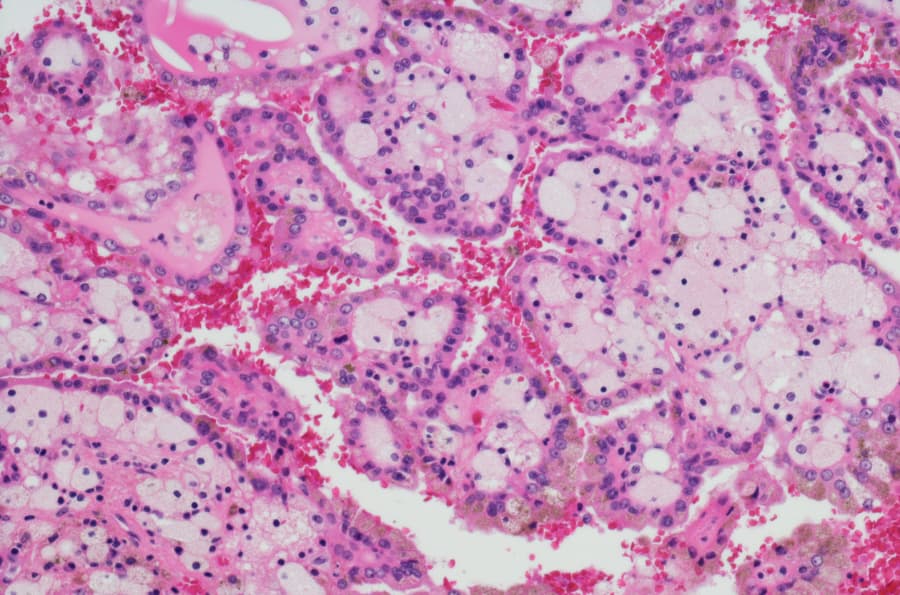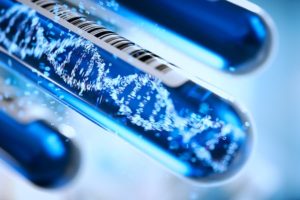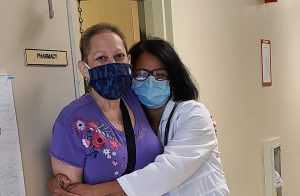
What Is Targeted Cancer Therapy?
The National Cancer Institute defines targeted therapy as “a type of cancer treatment that targets proteins that control how cancer cells grow, divide, and spread.” Learn more
HIPAA Alert: Potential Data Breach Learn More
Questions on Oncology, Hematology and/or Infusion Clinical Services due to COVID-19 Crisis – CALL 833-698-1623
Important Information for Our Patients Regarding the Coronavirus.
RCCA Providing Area Cancer Patients with Access to Care During Coronavirus Outbreak
RCCA Offering Patients Virtual Visits During Coronavirus Pandemic
Kidney cancer (renal cancer) refers to cancerous cells that develop and grow out of control in the kidney. Every year, there are around 82,000 new cases of kidney cancer in the United States. Early detection is crucial because treating kidney cancer in its earliest stages offers the best chance of survival.
Regional Cancer Care Associates (RCCA) serves patients with cancer or blood disorders throughout New Jersey, Connecticut, Maryland, and the Washington, D.C., area. No matter a person’s age or health history, RCCA’s medical oncologists and hematologists develop personalized care plans to help patients manage cancer diagnoses and lead fulfilling lives. Learn more about kidney cancer and the treatment approach at Regional Cancer Care Associates.
The kidneys are a pair of bean-shaped organs, each about the size of a fist, attached to the upper back wall of the abdomen. Cancer begins when something triggers a change in the cells, and they divide out of control. In time, these cells form a mass called a tumor.

There are several risk factors for kidney cancer including:
Knowing and modifying controllable risk factors, along with undergoing regular kidney cancer screenings and evaluations from physicians, are important for prevention and early detection of kidney cancer.
There are many types of kidney cancer. The most common is renal cell carcinoma (RCC), which accounts for approximately 85% of all malignant kidney tumors. RCCs form in the parts of the kidney that produce urine. RCC can be broken down into more specific subtypes.
After identifying a patient’s RCC subtype, a doctor can determine whether the patient has an inherited form of the cancer, which can help shape the treatment plan.
Another, less-common type of kidney cancer is transitional cell carcinoma (TCC). Also known as urothelial carcinoma, it starts in the lining of the renal pelvis (where the ureters meet the kidneys). Kidney cancer in children is almost always a Wilms tumor (nephroblastoma). This type of cancer is extremely rare in adults.
Patients with kidney cancer may not have or feel symptoms until the tumor has grown larger, making screening of high-risk individuals imperative for early detection. Signs and symptoms of kidney cancer may include the following:
If the disease spreads to another part of the body (metastasizing), kidney cancer can cause symptoms such as shortness of breath, coughing up blood, and bone pain.
Physicians take several steps in evaluating a patient for possible kidney cancer, generally beginning with a physical examination and personal and family history. From there, physicians may wish to order assessments such as:
People diagnosed with kidney cancer can receive a range of services for RCCA’s expert medical oncologists, from a second opinion on a diagnosis or treatment plan to development and implementation of a highly personalized treatment regimen employing the latest evidence-based therapies.
Just like other forms of cancer, kidney cancer is categorized in stages based on its extent, tumor size, and spread. The stage of cancer is used to determine the preferred course of action for treatment and recovery.
Using the TNM system developed by the American Joint Committee on Cancer (AJCC), kidney cancer is graded from stages I through IV. This system adds further insight to each stage, with numeric values for tumors, nodes, and spread (metastasis). The stages of kidney cancer are:
Because no two cancer diagnoses are alike, treatment depends on the specific patient. When selecting kidney cancer treatments, medical oncologists develop plans based on each patient’s needs.
Taking into account several factors, such as patients’ overall health and test results, care plans may include:
Treatment options may also include clinical trials and experimental procedures.
Thanks to ongoing research and treatment advances, care for kidney cancer has never been more effective than it is today. People in New Jersey, Connecticut, Maryland, and the Washington, D.C., area, can receive comprehensive kidney cancer care at more than 20 Regional Cancer Care Associates locations. The team of experienced board-certified oncologists specializes in treating patients of all ages for cancer or blood disorders. For more information, contact Regional Cancer Care Associates.
With 25 locations across Connecticut, Maryland, and New Jersey, RCCA is equipped to help people beat renal cancer and maintain their quality of life. If you or a loved one has or suspects kidney cancer, schedule an evaluation at a location near you.

The National Cancer Institute defines targeted therapy as “a type of cancer treatment that targets proteins that control how cancer cells grow, divide, and spread.” Learn more

One of the newest cancer treatment methods offered at Regional Cancer Care Associates is targeted therapy. For some patients, targeted therapy can drastically improve their Learn more

“You look kind of yellow.” Learn more
It was not the sort of dinner table conversation Brenda Morgart had anticipated when she and her husband got together with her niece and the niece’s boyfriend for a meal one night in October 2020. Nor could she have anticipated the life-changing events that would follow from her niece’s observation. Learn more
When standard cancer treatments aren’t providing the results you want, clinical trials may offer hope. Our physicians use clinical trials to study new treatments, helping transform cancer care for the better. You can enroll in a clinical trial to try groundbreaking treatment plans at zero cost to you.

Regional Cancer Care Associates is one of fewer than 200 medical practices in the country selected to participate in the Oncology Care Model (OCM); a recent Medicare initiative aimed at improving care coordination and access to and quality of care for Medicare beneficiaries undergoing chemotherapy treatment.